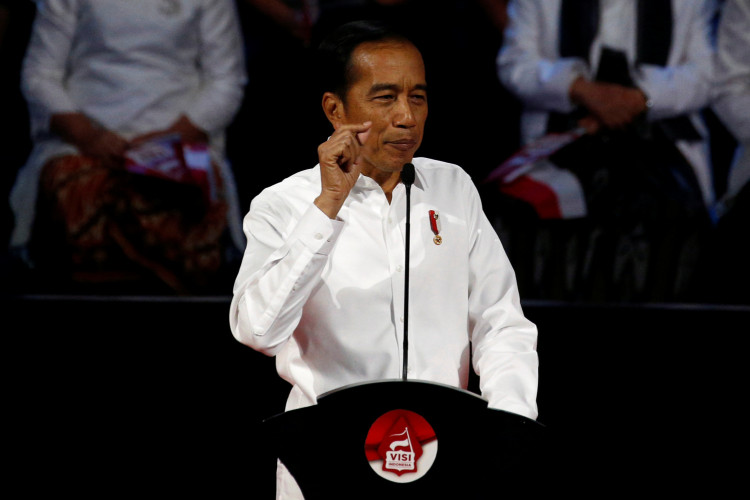Indonesian President Joko Widodo encouraged his countrymen at a National Public Procurement Agency (LKPP) event to patronize local products over imported goods to help boost the economy.
According to the Jakarta Globe, Widodo, who is fondly called "Jokowi," asked during his speech why the country turned to importing as a "hobby." He used the purchase of "hoes" as an example, calling it "unacceptable" to be using the government's money for buying the said products.
Widodo went on to express his dismay over the importing of hoes and "thousands of other goods" that Indonesia has been importing over the past years. He said the country is actually big and showcases a rising manufacturing sector, which could help boost the domestic economy.
The Indonesian chief's dismayed statements came after the latest data revealed that the country's gross domestic product (GDP) expanded by 5.02 percent during the third quarter of this year.
The said figure is the weakest record yet since the Indonesian economy slumped during Q2 2017. While the country has been relying heavily on domestic consumption, global trade tensions affected growth in Q3.
Widodo is now faced with the challenge of overcoming the impact of weakening domestic demand as well as softer activities with China and the United States, two economic giants that has helped drive growth in Indonesia.
For Jokowi, Indonesia should prioritize locally-produced goods since the country is known for driving the economy through widespread domestic consumption and stable activity in homegrown manufacturing plants.
During the second quarter of this year, the country posted GDP growth at 5.17 percent. While Jokowi said domestic goods should be prioritized, he is also working to get more investments to help boost economic growth.
Meanwhile, some economic experts questioned the stability of Indonesia's GDP data despite the apparent downturn. Among those who questioned the credibility of the Statistics Indonesia (BPS) data were Capital Economics' Gareth Leather.
According to the Straits Times, Leather pointed out that the numbers appear to have been fairly steady over the past years. Indonesia's GDP has not gone below the five percent mark for the past few years.
Indonesian Finance Minister Sri Mulyani Indrawati quickly came to the defense of the country's statistics processes and measurement system. She clarified that the government has never intervened in terms of national statistics.
Indrawati further explained that the reason why Indonesia's economy stood above five percent despite global uncertainties is due to household consumption holding up. She added that this segment accounted for 56 percent of the country's total economy.
Finally, Indrawati challenged the BPS to openly invite global statistics offices and economists to review the bureau's GDP measurement processes. She noted that the bureau is "very open" and "transparent" in the methods it uses to measure GDP growth.





